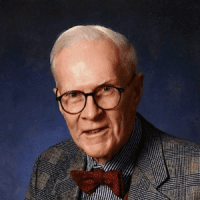The first of the three AHA divisional committees to meet this fall was the Research Division, which convened on the evening of September 22 in Washington and continued through most of the following day.
Now that the Association’s program of small grants-in-aid for research projects has been enlarged to provide opportunities in all geographic fields of history, the committee faces an even heavier workload. In order to insure sufficient time for careful review, the division considers applications for the new Schmitt grants in African, Asian, or European history projects at its fall meeting rather than in the spring as with the other grants. The committee members reviewed the thirty-six applications before their meeting and after prolonged discussion decided on nine awards for all or part of the sums requested. Of nine awards, there were five relating to European and two each to African and Asian history proposals.
The division devoted considerable time to discussing the report of the Council’s Ad Hoc Committee on the Future of the AHA, (Perspectives, September page one). It decided to work closely with the Teaching Division in considering possibilities for broadening the Association’s outreach to teachers. In considering the Ad Hoc Committee’s recommendation for an evaluation of the AHA’s prize structure, it urged the inclusion of a survey of awards given by our more than eighty affiliated societies.
The Research Division also considered problems relating to the annual meetings of the Association and to the American Historical Review. Recognizing that both are primarily an opportunity for dissemination of the latest research, the division grappled once more with the perennial and difficult problem of balancing the interests of specialists with the broader concerns of the Association. The division agreed with the Ad Hoc Committee’s emphasis on the need for more attention to synthesis and comparative work and will pursue efforts to bring that about. The division also discussed the relationship between the affiliated societies and the AHA’s program. Shying away from an entitlement approach, it nevertheless felt that there is room for improvement in communication with the affiliates and successive program committees of the Association; the Committee is actively seeking solutions.
Turning to the AHA’s demonstrated interest in and support of the National Archives and Records Administration, the Research Division Committee decided to urge the Council to approve a call to NARA to develop an advisory committee of users of the Archives. This committee would assist it in designing the projected new archives building to be of optimum utility to NARA users, counsel with it on the location of various types of records, and advise it on other archival matters. The old advisory committee of the Archives lapsed with the creation of an independent NARA four years ago, and a growing need is perceived for a suitable successor body.
In the same vein the division also recommended to the Council that it endorse an NCC statement of a proposed White House order on federal information policy. With a new president in 1989, although his identity is not evident in October, there is an opportunity for the learned professions to work together to improve public access to and government handling of its records.
The Research Division also spent some time discussing several new national awards programs, which touch on fields of concern to historians, and decided to discuss them further with the Teaching Division before responding to the sponsors.

